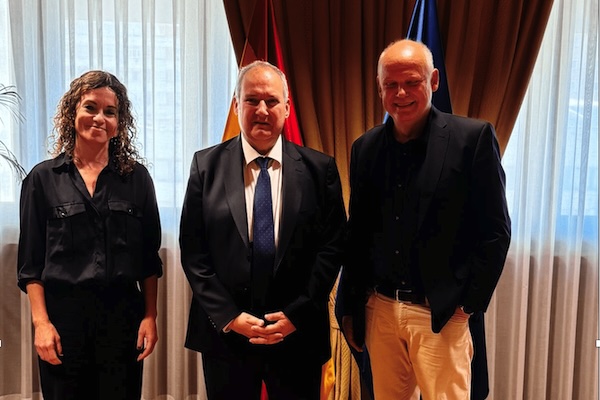Sustainable tourism must be embraced by local communities, according to TUI’s chief executive, Sebastian Ebel. A recent meeting in Madrid gathered tourism leaders to discuss solutions for over-tourism and the promotion of sustainable practices.
The discussion, set amidst protests in various Spanish regions, focused on the importance of local collaboration to enhance tourism’s benefits. Ebel emphasised the need for cooperation between the community, government, and industry to develop sustainable tourism models.
The Importance of Local Support
TUI’s chief executive Sebastian Ebel underscored that tourism thrives when it has the acceptance and support of local populations. Local communities play a pivotal role in determining the sustainability of tourism by influencing how it integrates with their daily lives and environment.
Ebel noted that social sustainability is essential, focusing on areas such as education, training, job creation, local culture, and affordable housing. This model has already seen success in various regions worldwide, where joint initiatives have improved local value creation.
Economic Impact of Tourism in Spain
Tourism remains a significant contributor to Spain’s economy, accounting for 12.8% of the GDP in 2023 and projected to increase this year. The influx of over six million TUI holidaymakers to Spain this summer exemplifies the sector’s pivotal role.
This flow of tourists translates to thousands of stable jobs across hotels, ports, and airports, thereby significantly bolstering the Spanish tourism industry.
Ebel argues that the current debates in Spain reveal a widespread acceptance of tourism, yet they underscore a demand for more sustainable practices that respect local lifestyles.
Addressing Over-Tourism
The recent protests in areas such as Barcelona, Majorca, and the Canary Islands highlight the challenges posed by mass tourism.
The local population calls for strategies that balance tourist influx with the preservation of everyday life. Ebel stressed the importance of creating living environments that benefit both residents and visitors.
Strategic collaboration between local authorities and tourism operators is seen as essential to addressing these concerns effectively.
Sustainability as a Driver of Development
In his address, Ebel highlighted that tourism can drive both economic and social development when it aligns with sustainable practices.
He pointed to TUI’s commitment to integrating green innovations like sustainable fuels and resource-efficient hotel operations.
Ebel emphasised that the successful transformation of tourism relies on green innovations and gaining the population’s acceptance of the tourism sector.
The Role of Government and Policy
Collaboration with the government, as seen in meetings with Spanish officials, was pivotal in discussing the production of sustainable aviation fuel and promoting green energy initiatives.
Ebel highlighted the ongoing revision of the European Package Travel Directive, urging for policies that create a balanced playing field for market players.
He voiced the need for regulatory support that ensures package holidays remain competitive and attractive, promoting them as the safest travel option.
Promoting Sustainable Tourism through Innovation
Ebel reiterated that sustainability is at the heart of TUI’s operations, with a focus on green energy and sustainable tourism.
He noted the essential role of innovation in developing economically viable and environmentally friendly tourism solutions.
TUI’s strategic initiatives aim to harmonise economic growth with environmental responsibility. Acknowledging local community input is essential in this regard.
Community-Led Tourism Strategies
According to Ebel, sustainable tourism must reflect community preferences, allowing residents to define the scope and nature of tourism in their regions.
In conclusion, the pathway to sustainable tourism lies in local support and strategic collaborations. Ebel’s insights at the Madrid meeting stress aligning industry practices with community needs and environmental sustainability.
By fostering partnerships and innovating responsibly, the tourism sector can ensure a prosperous, sustainable future.

